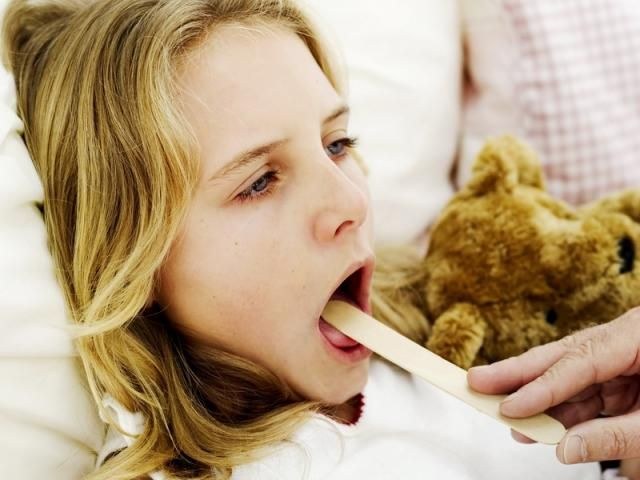Features of children's sore throats
Despite the prevalence of sore throat among children, it is impossible to perceive as the common cold. Often the onset is difficult to trace, since children up to two years may not always complain of pain in the throat, and a runny nose, high temperature and red throat parents can take for colds or the flu. As a result of improper or delayed treatment, the child may develop chronic tonsillitis, which causes allergies, rheumatoid arthritis, kidney disease, heart and blood vessels.
At the appearance of first symptoms resembling sore throat, you need to immediately consult a doctor.
Catarrhal tonsillitis in children is usually apathy, lethargy, pain when swallowing, nausea and slightly elevated temperature. Antibiotics for a child under the age of two years directly depends on the clinical picture of the disease, anamnesis of the patient and the test result for the pathogen angina. In this form of the disease oral antibiotics can be used to complement or replace anti-inflammatory spray is the local destination as well as a throat gargle and folk remedies – however, such treatment is only allowed for children with a strong immune system.
How to treat a festering sore throat
Follicular and lacunar tonsillitis accompanied by purulent follicles in children occur is difficult, becoming complicated by fever and a temperature of more than 40oC. For children from one year to two years is granted to surrender smear of bacterial culture, determining the sensitivity of bacteria to a specific antibiotic – usually the preference is given to such drugs as "Amoxiclav", "Augmentin", "Ampicillin", "Clarithromycin", "Cefazolin", "Cefuroxime" and "Sumamed". Small children are given medication in the form of drops, suspensions or syrups.
Treatment of lacunar and follicular tonsillitis is carried out identical ways with the same goal – the destruction of the causative agent.
To lower the temperature, children are given a "Paracetamol", "Nurofen" or "Paracetamol", which is prescribed to kids in the form of suppositories and syrups. Angina in children under two years, the treatment is preferably carried out in stationary conditions, where the child will see a pediatrician. With a relatively minor illness is not necessarily the concern of parents and home will help your baby to recover faster and medical control in the presence of opportunities may pay a pediatrician. In severe and the presence of complications up to two child placed in a hospital.
